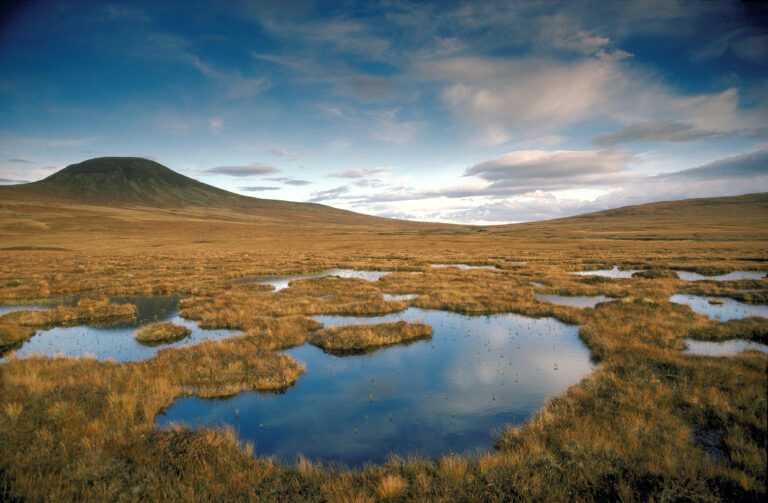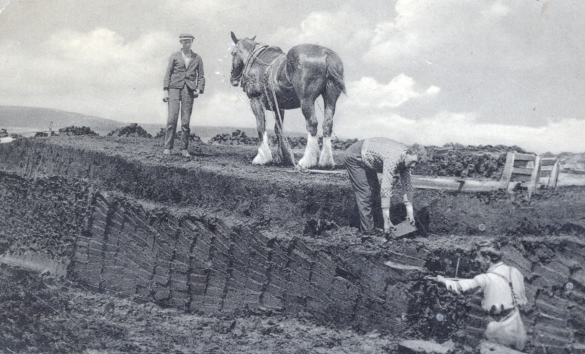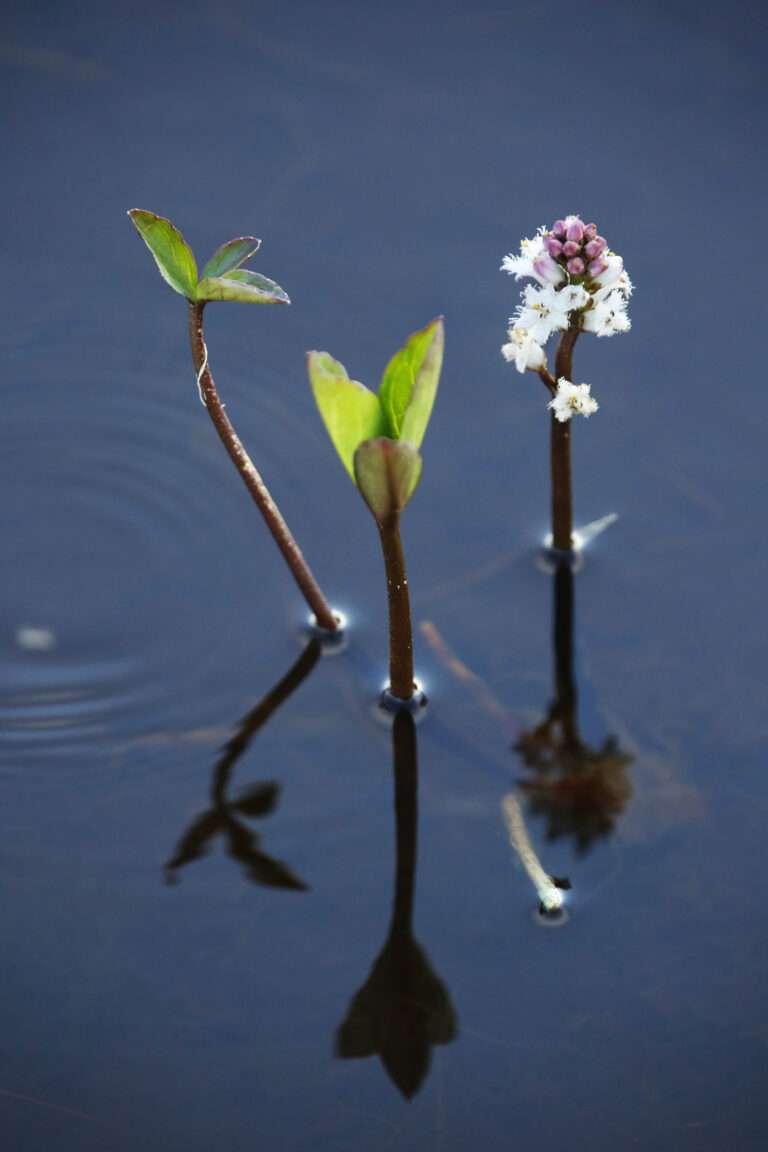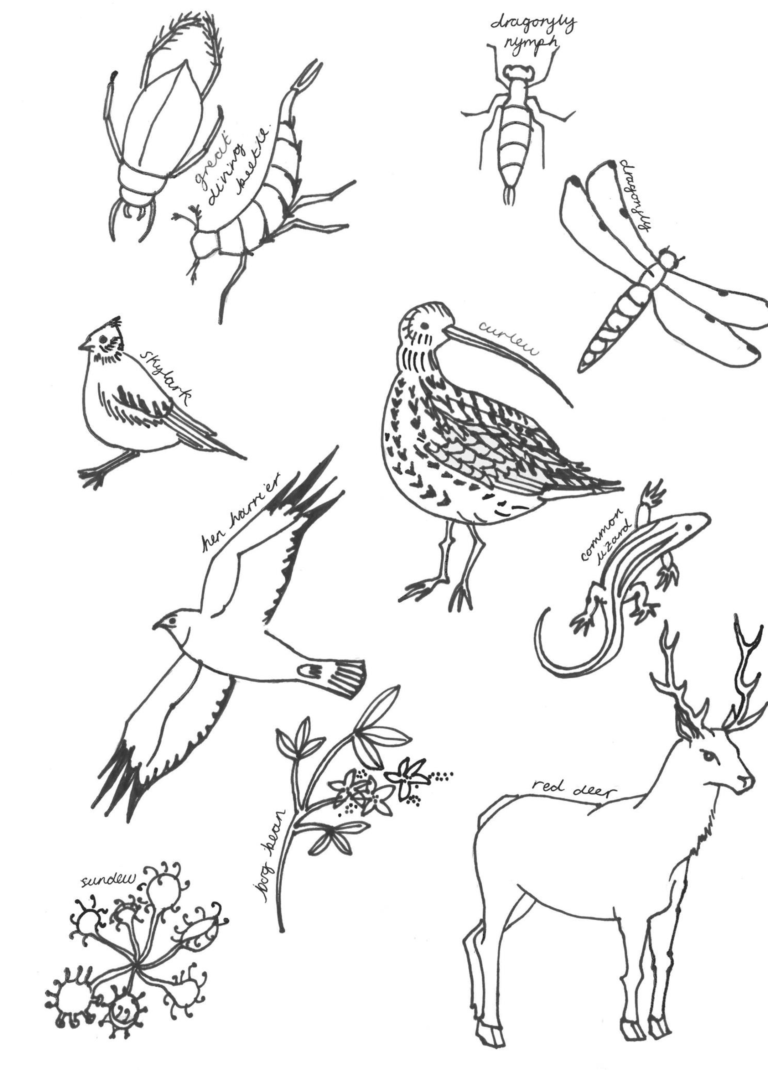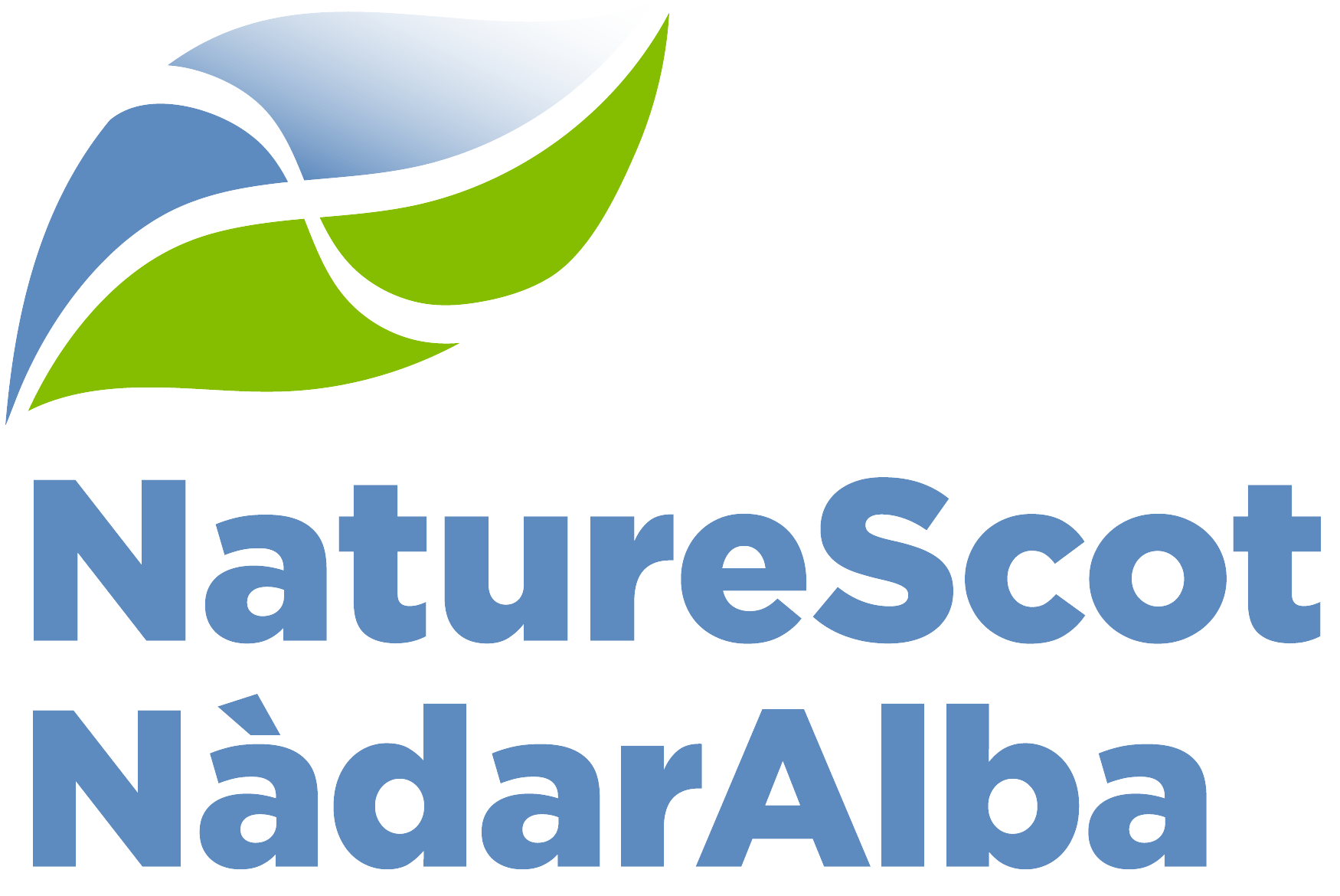Find inspiration in one of the wildest, least altered landscapes in the UK
The Flow Country is an area of deep peat, dotted with bog pools, that forms the heart of the Caithness and Sutherland peatlands. Covering about 200,000 hectares, it’s more than twice the size of Orkney. Altogether, this corner of Scotland holds more than 400,000 hectares of blanket bog, making it the largest expanse of this remarkable, wild habitat in Europe.
Blanket bog only forms in cool places with plenty of rain. The few plants that can grow here don’t rot away, but build up to form deep layers of peat. The Flow Country’s bogs have been growing for over 10,000 years, ever since the glaciers melted away at the end of the last Ice Age, and the peat is now up to 10 metres deep.
